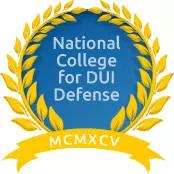If a police officer believes you are driving erratically, they may pull you over on suspicion of DWI in Texas. The officer will first look for physical signs of intoxication, such as red eyes, the smell of alcohol, slow reactions, and slurred speech. If the officer believes you are intoxicated, they might ask you to submit to a field sobriety test for additional clues about your condition. This blog post will discuss some typical field sobriety tests and outline your rights when it comes to these examinations.
Standard Field Sobriety Test
According to the NHTSA, the Standard Field Sobriety Test (SFST) includes three separate tests, which are the HGN (horizontal gaze nystagmus), walk-and-turn, and one-leg stand. You should be aware that police officers tend to record these tests via body cameras or the cameras installed in their cruisers.
Horizontal Gaze Nystagmus (HGN)
This field sobriety test for eyes is also known as the “pen test.” The police officer will hold a pen or stimulus of some sort in front of you and ask you to gaze and follow its movements only with your eyes. With this test, the officer is looking for repetitive or uncontrolled jerking of the eyes (abnormal nystagmus).
 Based on their training and judgment, the officer will determine if you passed the test. The test does not involve any recording of your actual eye movement, and there is no second opinion. The officer’s word is final on whether you passed or failed the test. However, a skilled DWI defense attorney can cast doubt on this test’s reliability.
Based on their training and judgment, the officer will determine if you passed the test. The test does not involve any recording of your actual eye movement, and there is no second opinion. The officer’s word is final on whether you passed or failed the test. However, a skilled DWI defense attorney can cast doubt on this test’s reliability.
One-Leg Stand (OLS)
As the name suggests, in the one-leg-stand test, the police officer will require you to stand on one leg while counting to 30. The challenge with this test is that unstable ground, irregular footwear, poor body balance, cold weather, and wind may impact your ability to perform it successfully, even if you did not drink.
Walk and Turn (WAT)
As part of the walk-and-turn field sobriety test, the police officer will require you to walk nine steps in a straight line with your feet touching heel to toe. After a certain point, you have to turn on one foot and repeat.
If a law enforcement officer asks you to exit your vehicle, you should do so. However, if they ask you to submit to a field sobriety test, it is not mandatory. However, be mindful that declining to perform the tests will almost always result in an arrest.
Non-Standard Field Sobriety Tests
In some cases, the officer may use a non-standard field sobriety test, such as:
- Stating the alphabet, starting and stopping at abnormal points
- The finger touch counting test
- Leaning backward with outstretched arms, otherwise known as the Rhomberg Test
 Touching your nose with a finger after closing your eyes
Touching your nose with a finger after closing your eyes
Should You Refuse the Field Sobriety Tests in Texas?
Is a field sobriety test obligatory? The short answer is, “No.” Field sobriety tests are voluntary under Texas law. However, if the officer asks you to exit your car, you must comply. Nevertheless, the question is, “Is it prudent to refuse a field sobriety test?”
If a law enforcement officer stops you and wants you to take this test, it usually means that they noticed you driving erratically and have a suspicion that you might be driving while intoxicated. Yet, mere suspicion is not enough, and the officer will need to have a probable cause to make a lawful arrest. Only after an arrest can they ask you to submit to a chemical test, which puts you in a tight spot. Your refusal to take a field sobriety test could provide that probable cause for an arrest. If you are uncertain whether your BAC exceeds the legal limit, the safe best usually is to refuse the field sobriety test.
Hire a DWI Defense Attorney to Protect Your Rights
If you’re facing a DWI conviction after the field sobriety tests, all hope is not lost. At Flood & Associates, our team of experienced, passionate, and dedicated DWI defense attorneys will give you the best defense possible. With an 85 percent win rate and an in-house blood laboratory, no one in the state of Texas compares to our resources and team. Call us 24/7, 365 at 713-224-5529 or use this online form to request a free consultation with one of our attorneys.









